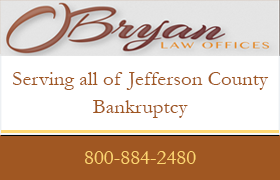Bagdad Bankruptcy & Debt Lawyer, Kentucky, page 2
-
Sponsored Law Firm
-
 x
x

Click For More Info:
-
Obryan Law Offices
9311 Preston Hwy Louisville, KY 40229» view mapBankruptcy Lawyers That Fight For You
Obryan Law Offices has helped thousands of families restore peace and order to their lives. Call us today!
800-884-2480
Julius Caesar Collado
Corporate, Credit & Debt, Employee Rights, Civil Rights
Status: In Good Standing Licensed: 29 Years
Nicole Sergent Biddle
Lawsuit & Dispute, Business, Bankruptcy & Debt
Status: In Good Standing Licensed: 23 Years

 Julie Obryan Jefferson, KY
Julie Obryan Jefferson, KY About UsObryan Law Offices
About UsObryan Law Offices FAQFrequently Asked Questions
FAQFrequently Asked Questions
